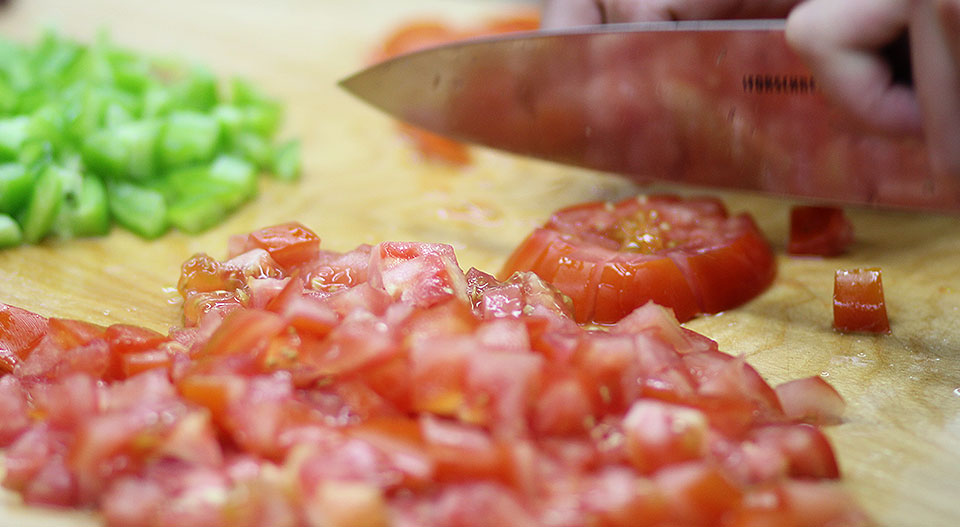

At stronggggg advisal from my parents, I spent my first year of college at a two-year in the UW system, about a 15-minute drive from the town where I grew up, Slinger, Wis. I commuted in my beat-up old Dodge Neon and lived at home. I transferred to UW-Stevens Point for my sophomore year rather than staying there the full two–and it was the right decision for me. So I arrived in the fall of 2011 with my double major in English and German for secondary education and got down to brass tacks.
My very first semester here, I took Food and Nutrition 151 for the Wellness credit in the GDR program (back in the simpler days before this GRE thing reared its head), as well as my other course load of I think History, Astronomy (another misplaced GDR), Psychology, aaaand German. FN 151 was an 8-week course that I took because I liked to bake, and because I figured it would be a good idea in general for me to learn about nutrition. Couldn’t hurt, I figured.
I decided by the time the final exam hit in late October that I needed to do something with this nutrition thing. I feel so strongly about it, and I’d never really taken the time to reflect upon or realize that fact! I am so glad that I happened to take that course–it brought to my attention that I had more than a hobbyist’s passion for nutrition. To me, it’s absolutely vital that we know what we’re eating and what it does to and for us; and it’s empowering to know how much influence we have over that, be it by prep or by informed consumerism. When I asked my English adviser, “How do I do this in a classroom?” she sent me over to the College of Professional Studies to meet with Lori Macrander. And that, my friends, is how I really met family & consumer sciences. I dropped German officially and signed up for the introductory FCS course, after which I declared the major.
I /love/ it. I’m starting to miss German, but how many majors can a girl have?
Two, according to my DPR. Not even, says the credit limits I’m hurtling toward. That’s a story for another day.
Back on topic: If you’re unacquainted with the field, family & consumer sciences is the preferred–and correct, and more encompassing–term for what was once called home economics. It does include food science and nutrition, but it also includes:
fashion design and textile stuff, sewing, interior architecture/design, child care, health occupations/med terminology, health and sex ed, relationship studies, personal finance aaaaand career explorations at the middle and/or high school level. It is for this huge list of reasons that we can get a little salty if you call us “Home Ec” teachers. UWSP and UW-Stout are now the only schools in the UW System which offer this major for teaching certification at all, so you should probably all take it to show your gratitude.
Because of the variety of topics or, I suppose, subjects that FCS includes, it’s a very inclusive field. I truly believe it has something to offer for everyone. Furthermore, the variety is so wide that scarcely two FCS teachers are the same, and almost certainly no departments are. FCS is able to twist and turn to the interests and needs of the community or the student body in which you place it. That’s one of the things that’s interesting when we socialize within the major–each of us has a focus, a favorite area, a different goal in approaching the classroom. I’m into foods and finance; some want to go into sewing and textiles; two chairs away from me, someone else says she wants to teach child care and interior design.
Not to mention the fact that if you graduate with a degree in family & consumer sciences, a ginormous field of opportunities presents itself to you. With FCS you can go on to work with families, communities, non-profits, camps … and in countless other areas. If any of these things are an interest, a passion, or a potential calling for you, check it OUT. There are two student orgs related to FCS: the University Council on Family Relations (non teaching-intent) and the Stevens Point Association of Family and Consumer Sciences (for the teachers). These organizations are a phenomenal window into the field, and like the major around which they congregate they cater to an immensely wide field of involvements and interests. I may be a little biased in favor of SPAFCS, but I might also be the vice president. Oops.
At any rate though, student orgs (whatEVER your major) are just such a great way of networking, of meeting faculty and other students and professionals in your field. There’s no better built-in way of making yourself marketable and, added bonus, making sure that you’re in the right field. And for me, there’s no field more appealing than one in which I can take a true passion of mine and hope to instill that passion and that knowledge in a generation who will be faced daily with the challenge to make decisions about nutrition and personal finance and relationships every day. I will have the unique position of being able to watch my classroom change the lives of students as it happens. How dope is that.
-Amy
Amy Vida is a junior at the University of Wisconsin-Stevens Point majoring in family & consumer sciences and English.
